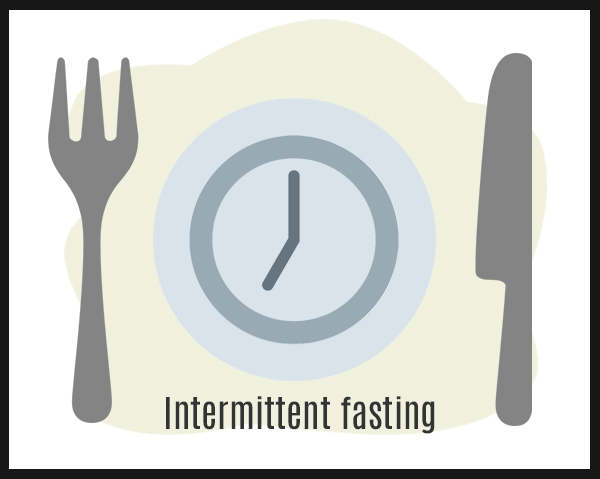Intermittent fasting, IF, early dinner and late breakfast, has become a popular method for getting lean and losing weight. IF is an umbrella term for various diets that cycle between a period of fasting and non fasting during a defined period.

What is intermittent fasting?
Intermittent fasting is not a diet; it is a pattern of eating. It’s a way of scheduling your meals so that you let the most out of them. IF doesn’t change what you eat, it changes when you eat.
How does IF works?
Firstly, we need to understand about FED State and FAST State.
| FED state
Starts when you begin eating and lasts for 3-5 hours. |
POST-Absorptive State
State when your body isn’t processing a meal and lasts until 8-12 hours after your meal. |
FAST state
Starts 12 hours after your last meal and also natural fat burning state of your body. |
Fasting triggers the process of autophagy, which breaks down and recycles dysfunctional proteins and cellular debris. This is similar to taking out the trash and cleaning up around the house. Hopefully, this gives you a better understanding of how IF works its magic inside your body.

Who should avoid Intermittent Fasting?
IF isn’t good fit for everyone. You shouldn’t consider IF if you are
- Pregnant
- Nursing
- Under chronic stress
- Struggle with sleep disorders, have history of bulimia or anorexia.
How appropriate is intermittent fasting for teenagers?
Not appropriate. Certainly occasion short fasts,(less than 24 hours) are fine but not longer ones because their bodies require more nutrients to grow.
Which protocol to follow for Intermittent Fasting?
There are few protocols like 16/8 method, the 5:2 diet, the warrior diet and many more. So all depends weather you female or male, your physical activity level, lifestyle or any disease condition.
Why intermittent fasting?
Because IF go beyond weight loss, may decrease LDL or bad cholesterol, improve insulin resistance which in turns stabilizes blood sugar levels, increase production of neurotrophic growth factor.
What are the drawbacks of intermittent fasting?
In my experience commonly seen side effects are bad breath, dizziness, insomnia, anorexia or bulimia and dehydration, metabolic stress, fertility issues.
So it is must for you to ask your Doctor or Dietician before considering Intermittent Fasting.
“Fasting is not nearly so deadly as Feasting”






